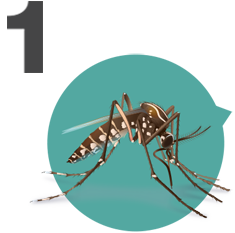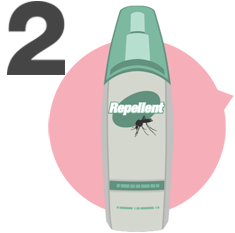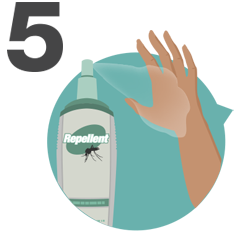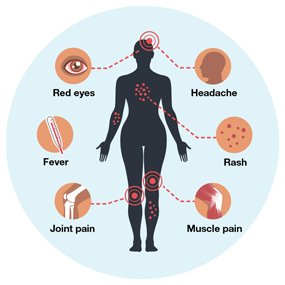What We Know
- Zika is spread mostly by the bite of an infected Aedes species mosquito (Ae. aegypti and Ae. albopictus). These mosquitoes bite during the day and night.
- Prevent Zika by avoiding mosquito bites.
- Zika can be passed from a pregnant woman to her fetus. Infection during pregnancy can cause certain birth defects.
- Zika can be passed through sex from a person who has Zika to his or her sex partners. Condoms can reduce the chance of getting Zika from sex. Condoms include male and female condoms.
- No vaccine exists to prevent Zika.
- Local mosquito-borne Zika virus transmission has been reported in the continental United States.
- The mosquitoes that can spread Zika are found throughout the United States.
Source: CDC | Top of Page
 What You Need to Know
What You Need to Know
Zika primarily spreads through infected mosquitoes. You can also get Zika through sex.
Many areas in the United States have the type of mosquitoes that can spread Zika virus. These mosquitoes bite during the day and night. Zika can also be passed through sex from a person who has Zika to his or her sex partners, even if the person doesn’t have symptoms.
 The best way to prevent Zika is to prevent mosquito bites.
The best way to prevent Zika is to prevent mosquito bites.
- Use EPA-registered insect repellent. It works!
- Wear long-sleeved shirts and long pants.
- Stay in places with air conditioning or window and door screens.
- Remove standing water around your home.
 Zika is linked to birth defects.
Zika is linked to birth defects.
Zika infection during pregnancy can cause a serious birth defect called microcephaly that is a sign of incomplete brain development. Doctors have also found other problems in pregnancies and among fetuses and infants infected with Zika virus before birth. If you are pregnant and have a partner who lives in or has traveled to an area with risk of Zika, use condoms or do not have sex during your pregnancy. To be effective, condoms should be used from start to finish, every time during vaginal, anal, and oral sex.
 Pregnant women should not travel to areas with risk of Zika.
Pregnant women should not travel to areas with risk of Zika.
If you must travel to one of these areas, talk to your healthcare provider first and strictly follow steps to prevent mosquito bites and sexual transmission during your trip. See CDC’s guidance for the US for information on travel within the continental US and Hawaii.
Returning travelers infected with Zika can spread the virus through mosquito bites and sex.
 Even if they do not feel sick, travelers returning from an area with risk of Zika should take steps to prevent mosquito bites for 3 weeks so they do not spread Zika to uninfected mosquitoes. If a mosquito bites a person while he or she has Zika virus in his or her blood, the mosquito can become infected and then infect other people.
Even if they do not feel sick, travelers returning from an area with risk of Zika should take steps to prevent mosquito bites for 3 weeks so they do not spread Zika to uninfected mosquitoes. If a mosquito bites a person while he or she has Zika virus in his or her blood, the mosquito can become infected and then infect other people.
Couples with a partner who lives in or has traveled to an area with risk of Zika, especially those who are pregnant or planning to become pregnant, should take steps to protect during sex. Zika can stay in semen for months after infection (even without symptoms), and can be spread to partners during that time.
Source: CDC | Top of Page
Zika symptoms
 Many people infected with Zika virus won’t have symptoms or will only have mild symptoms. The most common symptoms of Zika are
Many people infected with Zika virus won’t have symptoms or will only have mild symptoms. The most common symptoms of Zika are
- Fever
- Rash
- Headache
- Joint pain
- Red eyes
- Muscle pain
Symptoms can last for several days to a week. People usually don’t get sick enough to go to the hospital, and they very rarely die of Zika. Once a person has been infected with Zika, they are likely to be protected from future infections.
Source: CDC | Top of Page
For Additional Information:
- CDC's Zika Virus Home Page
- CDC printable Fact Sheets and Posters
- Geographic Distribution of Zika Virus
- CDC's Zika and Pregnancy Page
- CDC Zika virus Travel Health Notices
- Risk reduction steps for prevent mosquito bites
- Pan American Health Organization (PAHO) Zika Virus Home Page
- PAHO Printable Communication Materials

